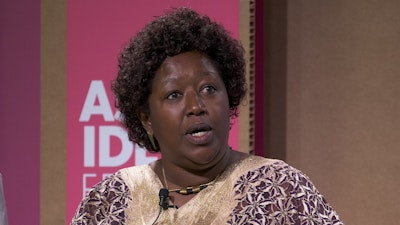
Agnes Binagwaho is a pediatrician, vice chancellor and professor of pediatrics at the University of Global Health Equity, a senior lecturer in the Pediatric Department of Global Health and Social Medicine at Harvard Medical School, and an adjunct clinical professor of pediatrics at Geisel School of Medicine at Dartmouth. She also serves as a senior advisor to the director general of the World Health Organization. With 20 years’ experience in the public health sector, Binagwaho previously served in the Rwandan government as executive secretary of Rwanda's National AIDS Control Commission, permanent secretary of the Rwanda Ministry of Health, and health minister from 2011 to 2016. She has over 150 peer-reviewed publications.
Previously

Although new technologies and public and private financial commitments have powered tremendous advances in global health in recent years, insufficient human capital and the la...

More than half the world’s population does not have adequate access to some of the essential health services they need, and 100 million people are pushed into extreme poverty...

Women have made health strides in recent years as attitudes toward domestic violence and sexual harassment evolve, but access to reproductive services remains an ideological l...

The United States health system falls short, bluntly declares the Commonwealth Fund in its recent report, “Mirror, Mirror 2017: International Comparison Reflects Flaws and Opp...

Cancer is on the rise in Africa, with the World Health Organization predicting that by 2020, it will take the lives of one million people a year across the continent. The most...

By 2030, the world will face a shortage of almost 14 million health care workers. In the United States alone, we’ll need as many as 35,000 more primary care doctors over the n...

Global health today is characterized by a mix of promising developments and troubling trends. Life expectancy is on the rise, and maternal and child mortality rates are fallin...

Community health workers, social media networks, and local residents serve as the first line of defense against global health risks, especially infectious diseases and bioterr...

